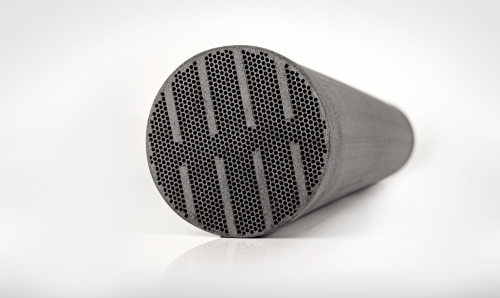
In a two-year project, Ceramic high-flux microfiltration membrane – AMASiNG, the partners will explore new ways of obtaining an optimal porosity in the membrane. According to DTU, they will test how the properties of raw materials and different processing procedures can affect the filtration performance. The membranes in the project are made of silicon carbide, which have a number of environmental advantages when used in biopharmaceutical and food and beverage applications. These include:
- Longer lifetime and therefore less waste generation;
- Membranes can tolerate high temperature steam cleaning, which can eliminate the use of cleaning chemicals;
- High filtration area per volume of carrier substrate; and
- Highly hydrophilic allowing high water flux and resist fouling.
DTU says that in order to purify antibiotics, for example, the cellular components must be effectively separated from the fermentation broth, letting only the pure antibiotics flow through the membrane. This means that the microstructure requires altering for new uses, providing a refined ultrafiltration membrane.


